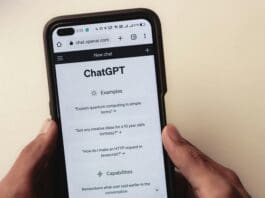This post is also available in:
 עברית (Hebrew)
עברית (Hebrew)
In a recent public alert, the FBI has flagged a concerning wave of cyber activity involving AI-generated content used to impersonate high-ranking U.S. government officials. This campaign, which began in April 2025, is leveraging sophisticated voice cloning and messaging technologies to deceive public servants and their associates into divulging sensitive information.
The operation combines smishing (malicious SMS messages) and vishing (fraudulent voice calls), both enhanced with AI tools capable of mimicking familiar voices and writing styles. Attackers are carefully crafting their messages to appear legitimate, often using names and faces of recognizable officials to build credibility.
Once initial contact is made, victims are encouraged to shift communication to alternative platforms. These secondary channels are frequently under the attackers’ control, either hosting malicious software or designed to harvest login credentials through realistic-looking but fake interfaces.
According to the FBI, this campaign is particularly dangerous due to the realism of AI-generated voices and texts. Victims often don’t realize they’ve been duped until after key data has been compromised.
What sets this threat apart is its methodical progression. Attackers often start by impersonating a known contact, using spoofed phone numbers and publicly available photos to establish trust. Once they gain access to one individual, they may leverage contact lists and correspondence to target others in the victim’s network, creating a ripple effect.
While the FBI has not disclosed which agencies or individuals have been most affected, the warning applies broadly to all government personnel and their associates. Officials emphasize the need for caution: verify all unexpected communications, particularly those claiming to be from high-level figures.
Recommended defenses include scrutinizing phone numbers, URLs, and message tone, as well as enabling two-factor authentication and establishing private verification codes with close contacts. The bureau stresses that sensitive information should never be shared over channels that haven’t been independently verified.
As AI tools grow more convincing, vigilance and skepticism remain the strongest defenses.




